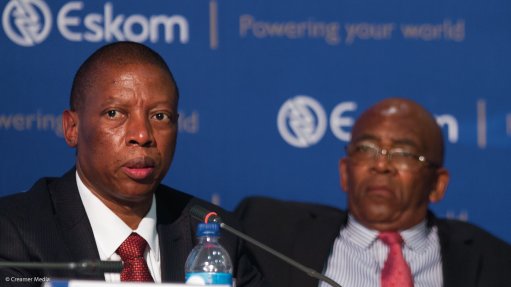
Collin Matjila and Zola Tsotsi
Photo by: Duane Daws
JOHANNESBURG (miningweekly.com) – South African electricity producer Eskom claims that discussions are back on track with Anglo American regarding a coal-supply contract with the proposed New Largo colliery, in Mpumalanga, following an earlier breakdown in the process.
The New Largo project is owned by Anglo American Inyosi Coal, a black economic–empowerment (BEE) company, held by Anglo American (73%) and the Inyosi Consortium (27%).
The project would comprise a new opencast mine, as well as a conveyor from the existing Phola processing plant to the 4 800 MW Kusile power station.
Chairperson Zola Tsotsi indicated at the weekend that a “disconnect” arose despite he and interim CEO Collin Matjila having travelled to London to discuss progress with Anglo chairperson Sir John Parker.
Following that interaction, Eskom was convinced that there was “concurrence” on the approach that should be taken. But “for reasons not known to us” Anglo’s management adopted a different stance in subsequent negotiations.
This precipitated a further high-level engagement with Anglo CEO Mark Cutifani to put the process back on track.
Matjila stressed that, in the interim, coal contracts had been stuck with four other collieries to shore up supply for Kusile’s commissioning. The 800 MW Kusile Unit 1 is scheduled for grid synchronisation by the end of 2015, with the subsequent five units to be introduced between 2016 and 2020.
Matjila said there had been a marked improvement in the process since Cutifani’s intervention and that a memorandum of understanding had been crafted and should be “finalised quite soon”.
Former Public Enterprises Minister Malusi Gigaba indicated in February that New Largo would be an example of a new type of empowerment, embracing both high levels of black ownership and operating capacity.
Eskom was stipulating 51% BEE participation, while government had indicated that its intention was to ensure that, by 2018, Eskom procured over half of its coal from black coal miners.